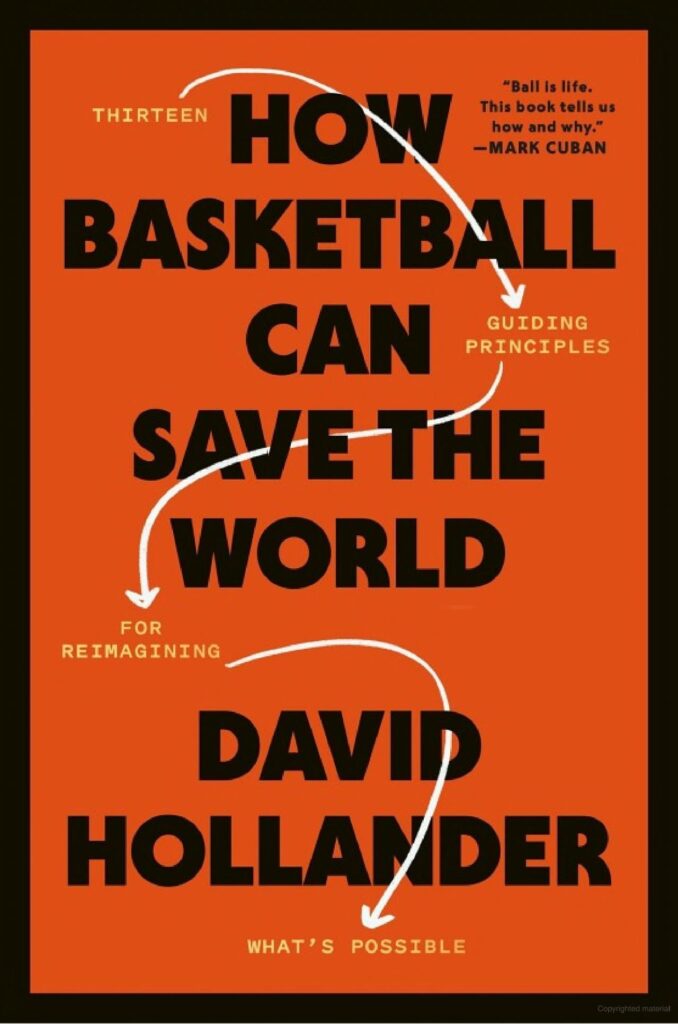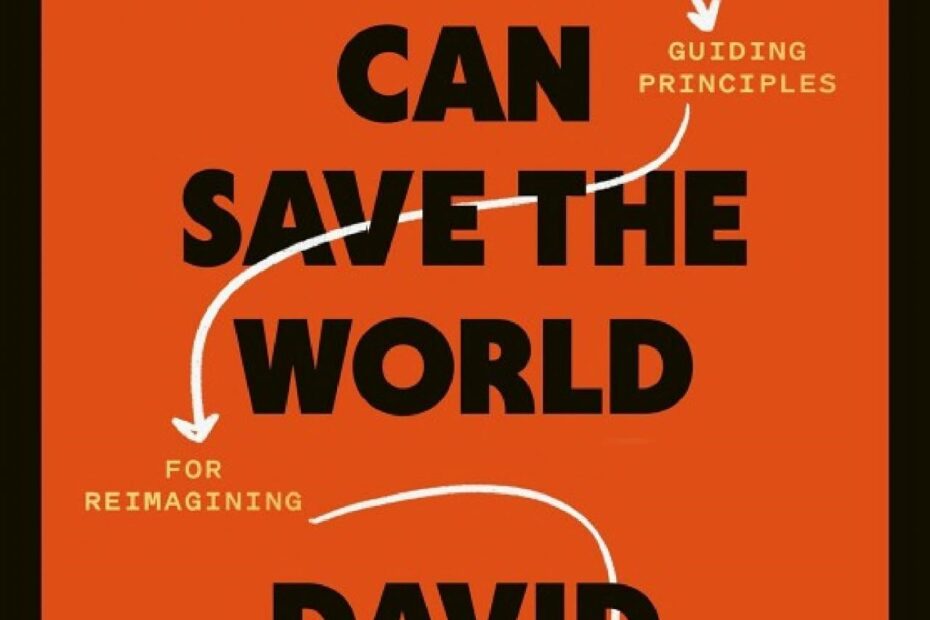“How Basketball Can Save the World” by David Hollander (2023) is an interesting read on life and sport especially in this 2024 Olympic year.
Instead of Chapters, this book has 13 guiding Principles. In watching the Men’s and Women’s 3×3 basketball, many of the principles shine through. Especially as the USA Men 3×3 did not win an Olympic medal and the favored USA Women 3×3 only winning a bronze medal.
Positionless-ness is a full chapter and a guiding principle. It emphasizes adaptiveness and embracing a position-less mindset. Its an excellent principle as no matter one’s size, height, or prowess, all players must dribble, pass, shoot, rebound, defend, run with a high degree of skill and proficiency. One must be highly skilled in all areas of play. Those that adapt and embrace this mindset are greater contributors to the team’s overall play and success. According to Hollander, “To say ‘That’s not my job, that’s not my position is insufficient. You need to be and do whatever is required in that new time and place. There’s just a unique challenge that you and your teammates have to solve together. The solution? You need to be it, whatever it is. Adopting a position of positionless-ness is the best preparation for whatever comes your way.'” One can see many instances in the workplace and in personal relations where position-less-ness pays dividends. If the first person to spot a problem owns and corrects it, whether or not its theirs, it pays dividends. People in your orbit notice and its appreciated. Its like leading the league in assists, tipped balls, loose ball retrieval, rebounds, and being a cheerful supportive teammate. Things like that are noticed. Most people want players around them who do these things naturally. Its catchy. People that are position-less in the workplace wear many hats. They are go-to people when new projects launch or something specific is a critical path item with a hard deadline. These people are results oriented and do whatever is needed to complete the task and overall project.
Hollander also expounds upon human alchemy, i.e., team chemistry versus team alchemy. Alchemy, too is a guiding principle. It transforms essential matter from its original form to a different, superior form; the original element disappears and becomes something else. According to Hollander, “On the best basketball teams, the best teammates make each other better because they make each other different-someone else they could never be but for the effect on each other. They alchemize. Successful basketball teammates are no longer what they once were.” Presently in the WNBA, we see this alchemy on the Indiana Fever with Caitlin Clark transforming her teammates into the best versions of the themselves.
My favorite paragraph in the book is entitled “The Playground is Open.” No membership or registration is needed. There is No Barrier to Access, which is another chapter or guiding principle of Hollander’s. He notes for comparison that public libraries have similar open access, but their services are staffed, plus run and supervised by others. Conversely, the basketball court is “run by us,” whomever we are, when we get there.”
Hollander suggests that public health leaders look to find the cure to loneliness and isolation in basketball. Just put more rims in more places as the game is “cooperative, a shared physical space, easy to access, accepting to all, little (is) needed in order to participate, and you can come by yourself.” This Muse feels another ingredient is needed – like joy. No one hangs around a court without skill or pure joy from the game. A dopamine rush when the ball hits nothing but net. Can it be repeated? That feels great! One made basket after another. Add teammates and an opponent, no more loneliness and isolation. In Ms. Muse’s experience, urban planners in distressed areas prioritize access to water (if available) in redevelopment projects via sidewalks, boardwalks, trails, and walking paths. No matter that these paths cut swaths through litter, debris, forlorn vacant lots, or industrial brownfields. Access brings people to the waterfront. Build it and they will come. The isolation and loneliness will vanish. This supports Hollander’s Principle called Sanctuary – we all have a fundamental right to sanctuary. A place to play that is a refuge and protection.
David Hollander, JD, assistant dean and clinical professor with the Tisch Institute for Global Sport at New York Unviersity.
How Basketball Can Save the World, Copyright 2023 by David Hollander. Published by Harmony Books, an imprint of Random House, a division of Penguin Random House LLC, New York. From the book itself. No copyright infringement is intended.

